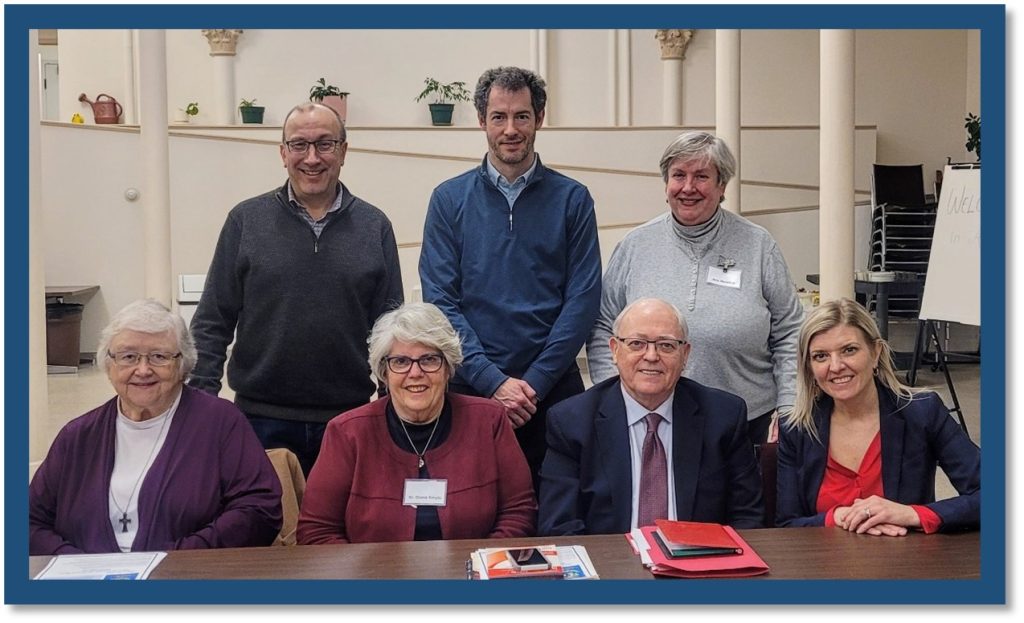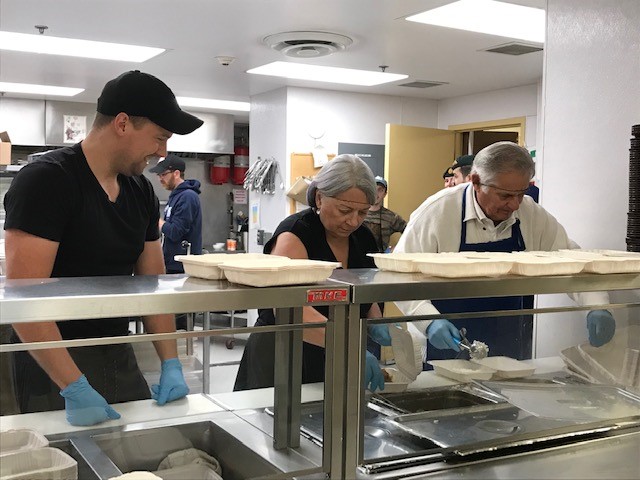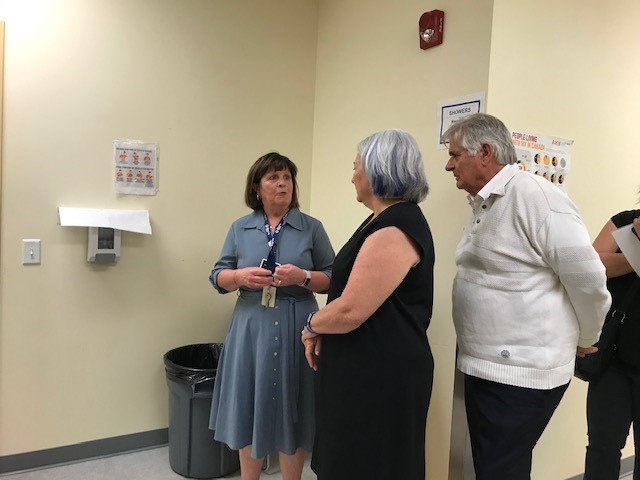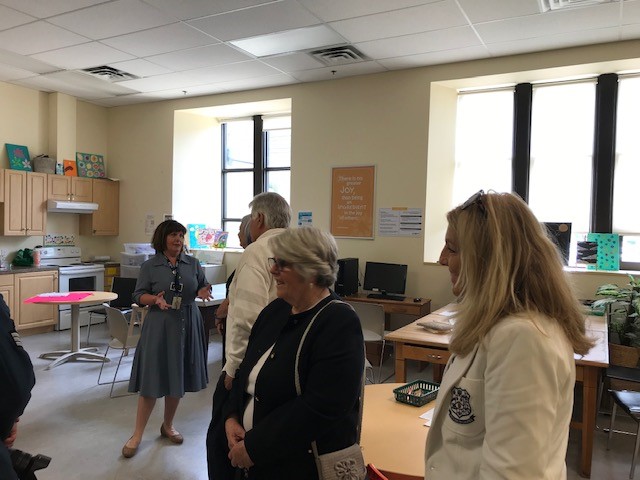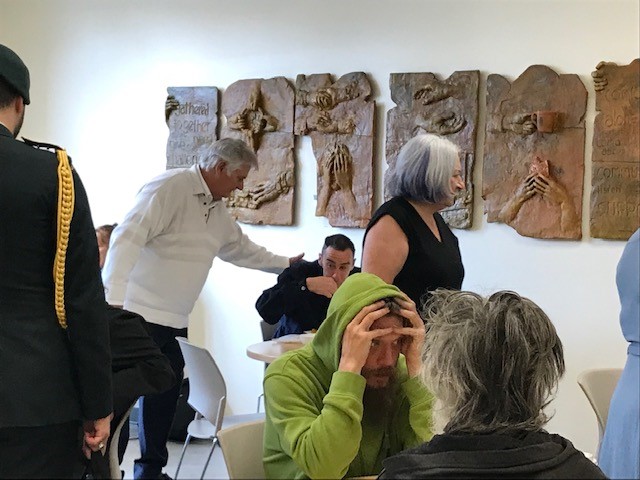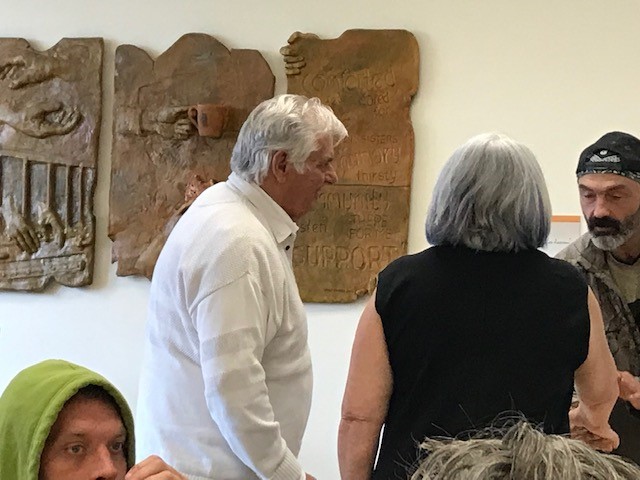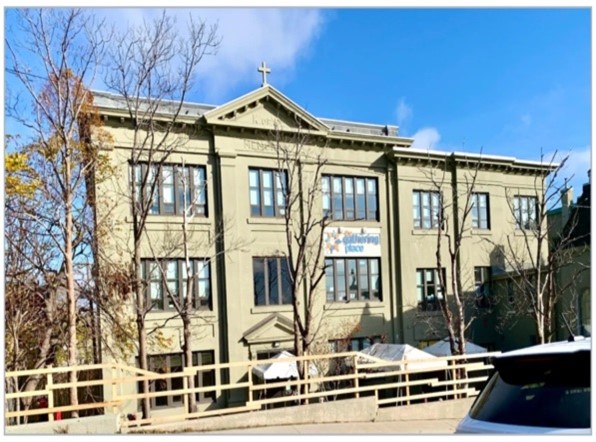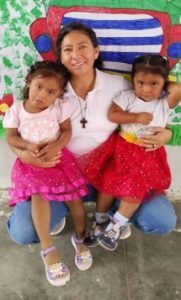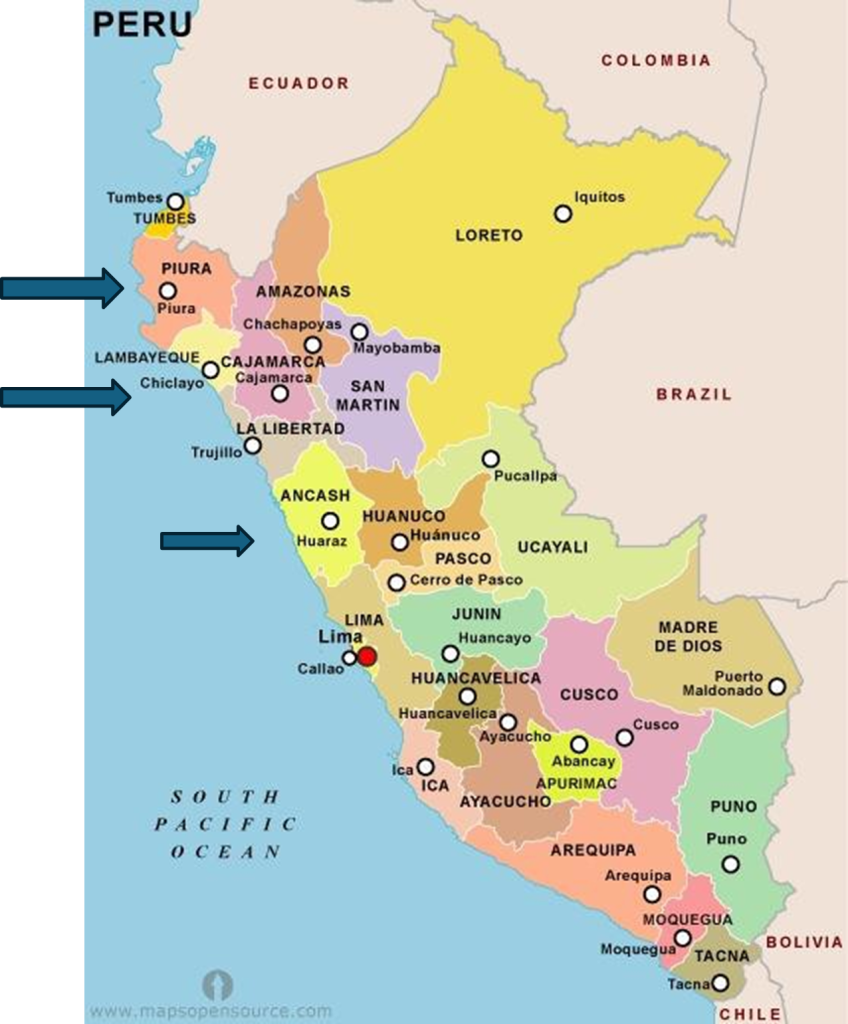Our congregation partners with Roncalli Foundation in Montreal, which in turn partners with VITA in Ireland. Through these two organizations we can, under Revenue Canada guidelines, support a water project in Ethiopia.
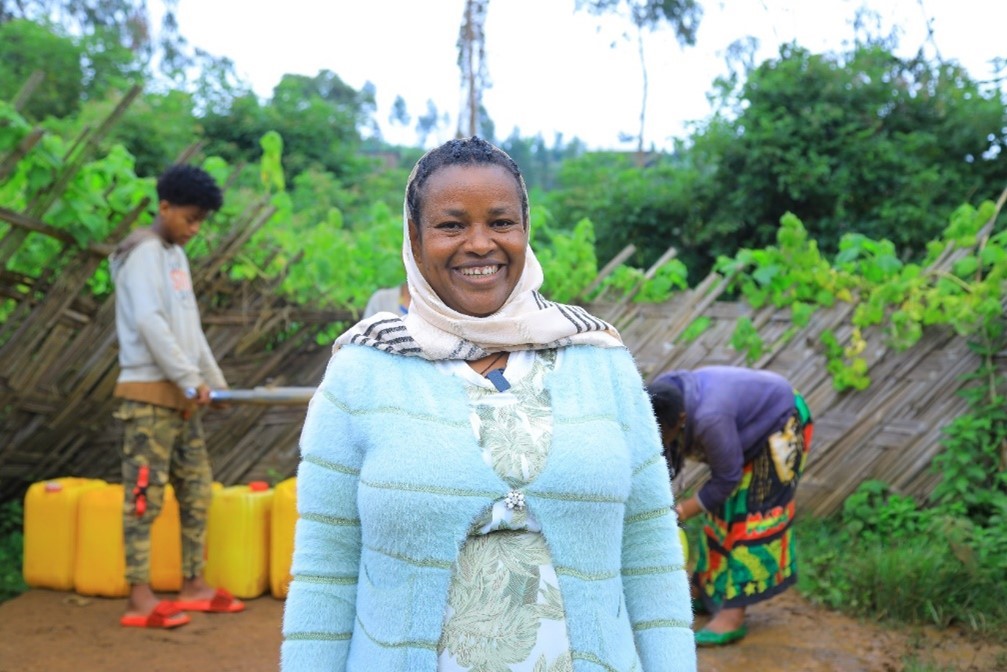
In the heart of Ethiopia’s rugged Rift Mountains lies the serene village of Holoo. Here, life unfolds against a backdrop of rolling hills, ancient traditions, and the ever-present struggle for water—a precious resource that sustains families, nourishes crops, and weaves the fabric of existence.
Denai Ysaak, a resilient woman with weathered hands and a determined spirit, has been one of Holoo’s Water, Sanitation, and Hygiene (WASH) committee members for six years. Her commitment to ensuring clean water access for her community is unwavering. Denai’s vision extends beyond her own generation; she dreams of a legacy where her children and their children can quench their thirst without fear.
Not long ago, Denai’s daily routine was a gruelling pilgrimage. Each morning, she would shoulder the weight of her responsibilities—literally. With a child strapped to her front and a water container on her back, she embarked on an arduous hour-long trek to the river. The water she collected was murky, contaminated and often insufficient. Denai knew this cycle had to change—for her sake and for the generations to come.
Holoo village needed to partner with an organisation that was committed to delivering sustainable water solutions and along came Roncalli and the Sisters of Mercy Newfoundland, through Irish NGO Vita. Together they set up the WASH committee, developed a plan to fix the old broken water point and created a sustainability plan to ensure that the newly refurbished waterpoint would endure indefinitely. The Access to Clean Water Programme reached Holoo, bringing hope and transformation.
Denai’s role became even more critical. As part of the WASH committee, she learned about water management, maintenance and hygiene practices. Armed with this knowledge she became a beacon of change. Her four children—ranging from 17 years to a mere five months old—now thrive. They no longer suffer from waterborne illnesses. Denai’s family, like others in Holoo, enjoys improved health, more productive days, and a brighter future.
Today, Denai walks to the community water point—not to fetch water, but to check its functionality. She inspects the pump, tests the water quality, and ensures timely repairs. Denai’s dedication echoes through the hills, reminding everyone that clean water is not just a necessity; it’s a lifeline.
Holoo’s story is one of resilience, collaboration and hope. Denai Ysaak’s legacy is etched in every drop of water that flows from the village tap. As the sun sets over the Rift Mountains, Holoo’s children play by the water point enjoying themselves rather than trekking with her to fetch water over long distances.
Additionally, because the water in the village is now clean, Denai and her women friends no longer have to gather wood to boil the water for sanitisation. This liberates their time back to them and also takes some of the pressure off of local forestry.
In Conclusion
Holoo, once parched, now thrives. The Access to Clean Water programme has turned the tide, and Denai Ysaak stands tall—a guardian of life-giving water. Her dream is simple: that the water point will endure, nourishing generations yet unborn. And so, in the heart of Ethiopia’s mountains, hope flows like a spring—refreshing, unstoppable, and eternal. Take a bow, Sisters!
Nuestra congregación colabora con la Fundación Roncalli de Montreal, que a su vez colabora con VITA en Irlanda. A través de estas dos organizaciones podemos, según las directrices de Revenue Canada, apoyar un proyecto de agua en Etiopía.
En el corazón de las escarpadas montañas del Rift, en Etiopía, se encuentra la serena aldea de Holoo. Aquí, la vida se desarrolla con un telón de fondo de colinas onduladas, tradiciones ancestrales y la lucha siempre presente por el agua, un recurso precioso que sustenta a las familias, nutre los cultivos y teje el tejido de la existencia.
Denai Ysaak, una mujer resistente de manos curtidas y espíritu decidido, es desde hace seis años miembro del comité de Agua, Saneamiento e Higiene (WASH) de Holoo. Su compromiso para garantizar el acceso de su comunidad al agua potable es inquebrantable. La visión de Denai va más allá de su propia generación; sueña con un legado en el que sus hijos y los hijos de éstos puedan saciar su sed sin miedo.
No hace mucho, la rutina diaria de Denai era una agotadora peregrinación. Cada mañana, cargaba con el peso de sus responsabilidades, literalmente. Con un niño atado al frente y un recipiente de agua a la espalda, emprendía una ardua caminata de una hora hasta el río. El agua que recogía era turbia, contaminada y a menudo insuficiente. Denai sabía que este ciclo tenía que cambiar, por su bien y por el de las generaciones venideras.
La aldea de Holoo necesitaba asociarse con una organización que se comprometiera a ofrecer soluciones sostenibles para el agua, y así llegaron Roncalli y las Hermanas de la Misericordia de Terranova, a través de la ONG irlandesa Vita. Juntos crearon el comité WASH, elaboraron un plan para arreglar el antiguo punto de agua roto y crearon un plan de sostenibilidad para garantizar que el punto de agua recién renovado perdurara indefinidamente. El Programa de Acceso al Agua Limpia llegó a Holoo, llevando esperanza y transformación.
El papel de Denai se hizo aún más crítico. Como parte del comité WASH, aprendió sobre gestión del agua, mantenimiento y prácticas de higiene. Con estos conocimientos se convirtió en un faro del cambio. Sus cuatro hijos, de entre 17 años y cinco meses de edad, ahora prosperan. Ya no sufren enfermedades transmitidas por el agua. La familia de Denai, como otras de Holoo, disfruta de mejor salud, días más productivos y un futuro más brillante.
Hoy, Denai camina hasta el punto de agua de la comunidad, no para buscar agua, sino para comprobar su funcionamiento. Inspecciona la bomba, comprueba la calidad del agua y se asegura de que se repara a tiempo. La dedicación de Denai resuena en las colinas, recordando a todo el mundo que el agua limpia no es sólo una necesidad, sino un salvavidas.
La historia de Holoo es una historia de resistencia, colaboración y esperanza. El legado de Denai Ysaak está grabado en cada gota de agua que sale del grifo de la aldea. Cuando el sol se pone sobre las montañas del Rift, los niños de Holoo juegan junto al punto de agua divirtiéndose en lugar de caminar con ella a buscar agua a grandes distancias.
Además, como ahora el agua de la aldea está limpia, Denai y sus amigas ya no tienen que recoger leña para hervir el agua y sanearla. Esto les devuelve su tiempo y también quita algo de presión a la silvicultura local.
En conclusión
Holoo, antes reseca, ahora prospera. El programa Acceso al Agua Potable ha cambiado la situación y Denai Ysaak se ha erigido en guardiana del agua que da vida. Su sueño es sencillo: que el punto de agua perdure y alimente a las generaciones venideras. Y así, en el corazón de las montañas de Etiopía, la esperanza fluye como un manantial, refrescante, imparable y eterno. Saluden, hermanas.


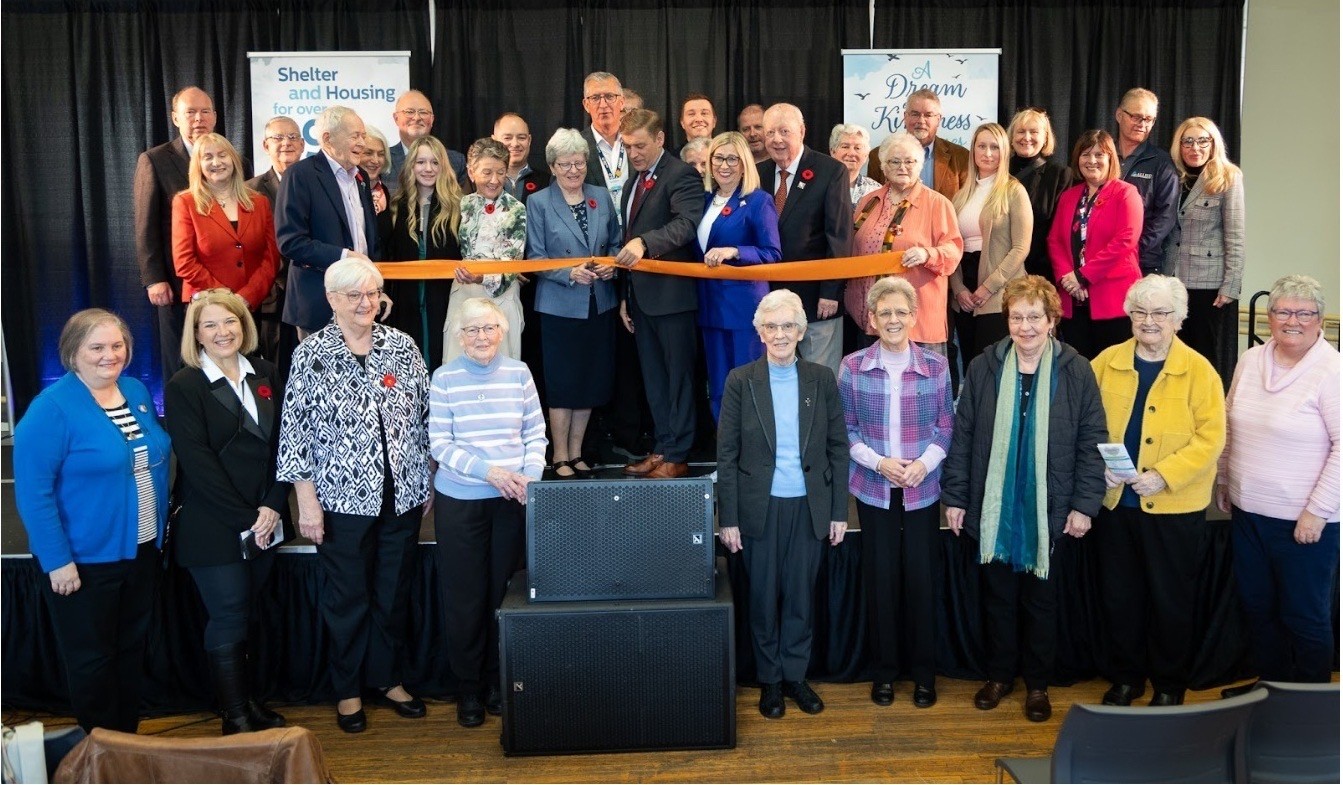 Sr Elizabeth Marrie cut ribbon. Srs Rosemary Ryan and Margie Taylor on stage among special guests.Sr Eileen Penney, Ms Susan Elliott, CEO Mercy Wellsprings, Srs. Betty Morrissey, Patricia March, Charlotte Fitzpatrick,Maureen O’Keefe, Presentation Leadership members Srs. Clo Martin, Betty Rae Lee , leader, Mary Rossiter.
Sr Elizabeth Marrie cut ribbon. Srs Rosemary Ryan and Margie Taylor on stage among special guests.Sr Eileen Penney, Ms Susan Elliott, CEO Mercy Wellsprings, Srs. Betty Morrissey, Patricia March, Charlotte Fitzpatrick,Maureen O’Keefe, Presentation Leadership members Srs. Clo Martin, Betty Rae Lee , leader, Mary Rossiter.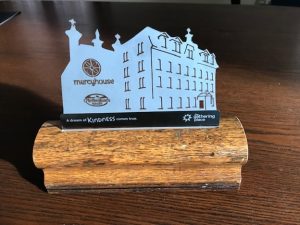
 The Hidden Disabilities Sunflower is a simple tool that lets a person voluntarily share that he/she has a disability or condition that may not be immediately apparent, thus that person may need a helping hand, understanding, or more time in shops, at work, in public spaces or on transport.
The Hidden Disabilities Sunflower is a simple tool that lets a person voluntarily share that he/she has a disability or condition that may not be immediately apparent, thus that person may need a helping hand, understanding, or more time in shops, at work, in public spaces or on transport. As the members of the Congregation of the Sisters of Mercy of Newfoundland increase in age and diminish in numbers, the Congregation, in conversation with colleagues, has been engaged in a discernment process regarding the future. A decision was made by the general assembly of the sisters, the 22 General Chapter (2021), to establish a legal entity that would oversee and carry out the governance of the various “sponsored ministries” of the Congregation. That entity, a legal corporation, was registered on August 10, 2023 as Mercy Wellsprings, Incorporated.
As the members of the Congregation of the Sisters of Mercy of Newfoundland increase in age and diminish in numbers, the Congregation, in conversation with colleagues, has been engaged in a discernment process regarding the future. A decision was made by the general assembly of the sisters, the 22 General Chapter (2021), to establish a legal entity that would oversee and carry out the governance of the various “sponsored ministries” of the Congregation. That entity, a legal corporation, was registered on August 10, 2023 as Mercy Wellsprings, Incorporated. Effective 29 July 2024, the Board of Directors of Mercy Wellsprings has appointed Ms. Susan Elliott MBA (Hons) as the first Executive Director.
Effective 29 July 2024, the Board of Directors of Mercy Wellsprings has appointed Ms. Susan Elliott MBA (Hons) as the first Executive Director.